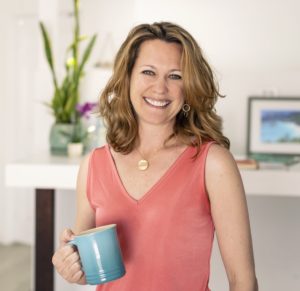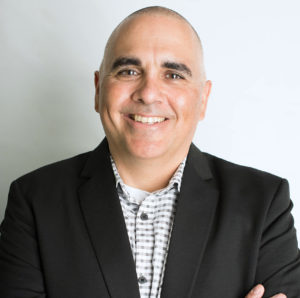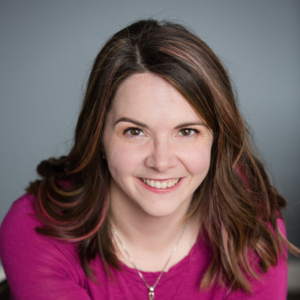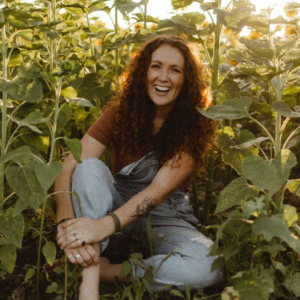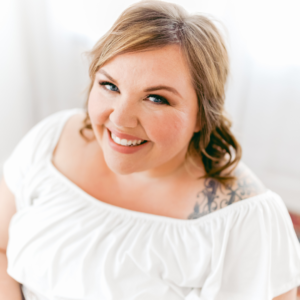If you’ve listened to Pep Talks for Side Hustlers for any length of time, you know that once a month I give you a look behind the scenes of my business into not only the financials and the strategies, but also the journey of me running up against my limiting beliefs and having to work through my fear and self-doubt on my quest reach the goals I’ve set for myself.
And just like any good quest, I meet people along the way who reveal the path forward for me, and my conversation with today’s guest was another one of those transformational moments.
Kelly McCausey is the founder of Love People + Make Money, a membership program for female entrepreneurs, especially single moms, to help them build up their communities and businesses.
One of the reasons I was so excited to have Kelly on the show is that just like me, she’s all about building a business through relationships and community.
Kelly and I did this interview at the end of January and at the time, I was just closing out my biggest revenue month ever, and like I told you back in my January 2020 Income Report that one of my podcast guests mentioned the book “The Big Leap” to me in an interview. That was Kelly.
And she probably doesn’t know this, but her recommendation sent me on that four-month long journey that I talked about in my April 2020 Income Report to rewire my mindset around money, my self-worth, how I value my body of work and what makes me happy.
That’s the kind of person Kelly is, and that’s the kind of impact she can have on someone in a single conversation, so I’m super excited to introduce you to her today so you can connect with her and change your life too.
Today we’re talking about:
- Kelly’s journey from starting a work-at-home-mom radio station to building a community around her podcast.
- How she creates connections and community.
- How she started monetizing without trading hours for dollars.
- How she sets herself apart + finds success in a saturated market.
- Why building real, genuine relationships will build your business.
- What a typical day looks like for Kelly.
- Her best advice if you’re struggling to grow your business.
- The one belief Kelly had to change about herself to get where she is today.
My favorite quotes from Kelly:
- “When you're brand new, the most important thing you can do is take a stand and have something to say.”
- “If you want people to know that you're legit and that you care about them, then then show it”
- “Create content that gives value, create experiences that deliver value. Create the opportunities for people to see you the way you want to be seen.”
- “A great brand comes out of knowing yourself and knowing your community so well.”
Resources mentioned in this episode:
- Jessica Larrew
- Mastermind Hub Code: Kelly
- The Big Leap Book
Bio:
I got my start in 2002. A single mom with one young son, I made graphics and websites for other home based business owners. I worked hard and charged too little for my time. Thankfully, I learned quickly there are smarter ways to build an income online. For many years now, I no longer trade hours for dollars. I blog, podcast, design, partner, create information products, run membership programs, hold live retreats and coach others to get where they want to be in an online business.


